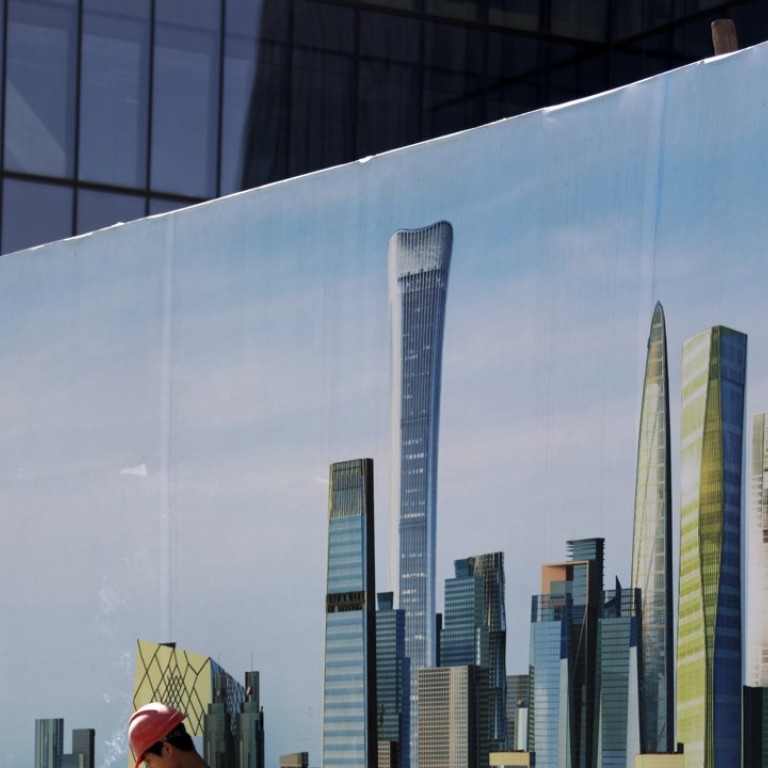
China’s central bank chief tamps down expectations of liberalising country’s financial industry
The People’s Bank of China Governor Yi Gang, two months after stepping into the shoes of the country’s longest-serving central bank chief, has sought to play down the expectations of a financial industry hankering for a faster pace of liberalisation, saying that whatever relaxation in regulations will have to be “gradual” and “steady.”
“We have introduced a few new policies after President Xi Jinping made the promise to the world that China will continue reforms during the Boao Forum” in April, Yi said during the Annual Conference of Financial Street Forum in Beijing. “We are working on more [plans], fine-tuning the time table and specific policies.”
Nearly two decades after joining the World Trade Organisation, China is fending off criticisms from the US and European Union that it’s still dragging its feet in opening the Chinese financial services industry - covering asset management, banking, insurance, stockbroking and trusts - to greater foreign participation. Overseas investors have also been pushing for a relaxation of China’s foreign exchange controls, where the currency remains non-convertible.
Any relaxation of China’s capital accounts, or financial industry must be “in accordance with regulatory capacity,” Yi said in a speech delivered in Chinese. Yi, who was promoted on March 19, took over from Zhou Xiaochuan, who had been running the Chinese central bank since 2002.
Operating in a sheltered market enabled Chinese banks to outgrow their foreign competitors, a fact that Yi acknowledged. Overseas banks owned 1.3 per cent of all assets in China’s banking industry in 2017, a smaller share than the 2.3 per cent share a decade earlier, which indicates they are “developing at a slower pace than the Chinese counterparts,” Yi said.
Criticism of China’s sheltered financial industry has become a flash point in Sino-US trade relations, becoming one of the topics that US Treasury Secretary Steve Mnuchin and US Commerce Secretary Wilbur Ross brought to China to negotiate to avert a trade war.
Partly to fend off US pressure, China in April announced that the foreign-ownership limit in securities, fund management, futures brokers and life insurers would be raised to 51 per cent.
That spurred UBS, Nomura and JPMorgan Chase & Co to apply to set up ventures in China, in anticipation that they would be able to operate wholly-owned businesses in China in the medium-term future.
They’re not alone. Global credit rating agencies S&P Global and Fitch Ratings last week said they would establish independent businesses in China soon, after having spent the past two decades working with Chinese partners.
“For foreign players, the ultimate target is 100 per cent control of the entity in China, but not everybody can enjoy the first-mover’s advantage,” said Mark Austen, the chief executive officer of the Global Financial Markets Association in New York. “Some people will lose money, and it will take them five to 10 years to get full control, another few years to get the license, and a few more to really compete on an equal footing with Chinese firms.”
Even if China were to remove all barriers to entry for overseas companies, there will still be many hidden barriers that can ensnare foreign firms, as long as the internal risk controls and management are not improved in the local economy, said a researcher at the Renmin University in Beijing
“China is totally unprepared for the opening up,” said Xiang Songzuo. “If we open up when the domestic institutions are unprepared, any promise [of reward and growth] made by the government won’t become reality.”
Bottlenecks remain in the invisible ties between China’s government and state-owned companies of various levels that have been fattened by protection, and which distort efficient allocation of market resources, Xiang said.
“Our national leaders were most concerned about the financial industry during an annual meeting last year, warning that the institutions were entertaining themselves and running their businesses without supporting the real economy, while regulators merely existed in name,” he said. “A real international financial centre like New York or London, becomes so because investors, sovereign funds, pensions, are comfortable to trade, save or invest there, and use the local currency. How can China achieve this without opening up the capital account – not to mention the monitoring of capital flow became even more prudent in recent years?”

